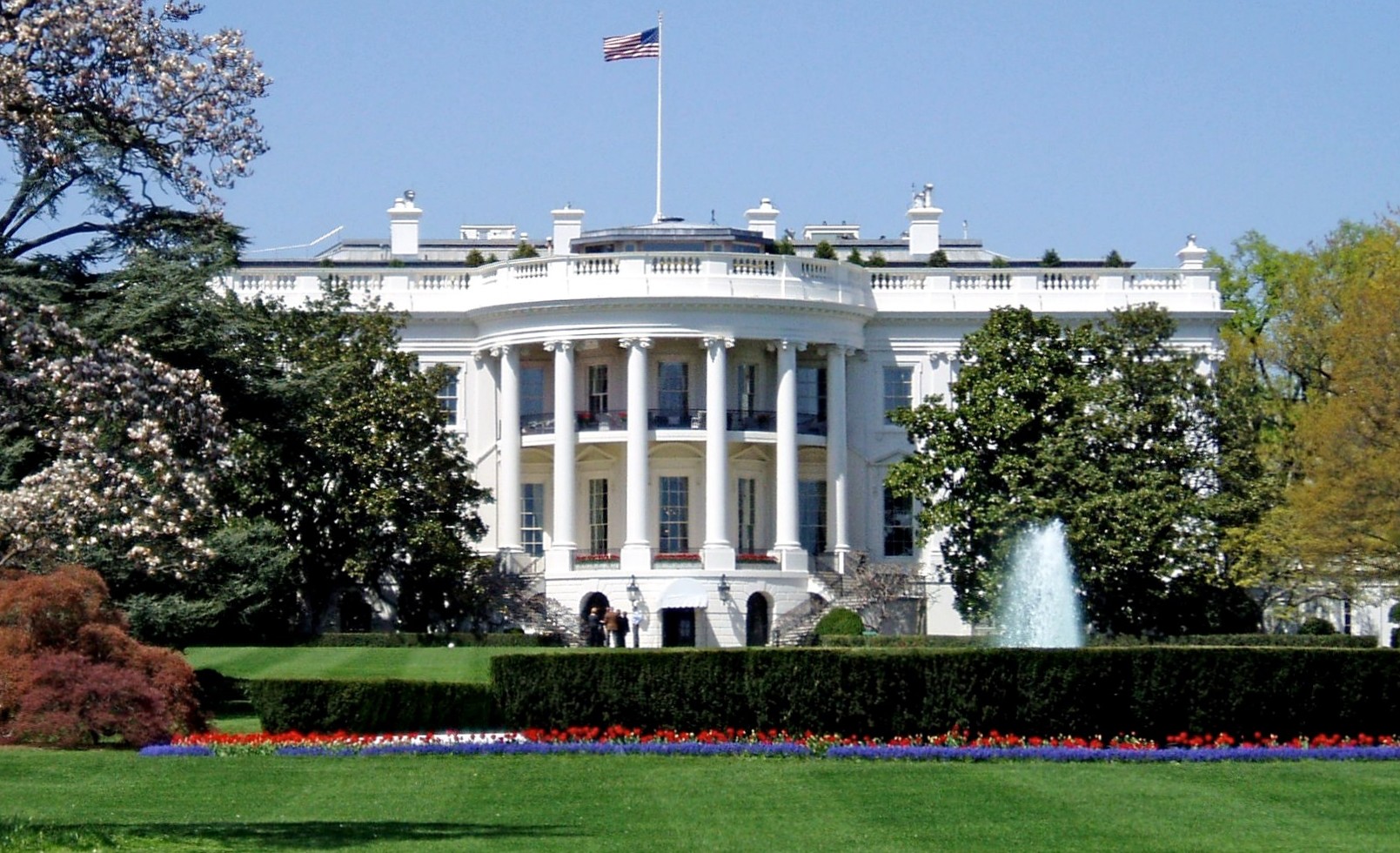BPR talked to Jim Gray, the Vice Presidential Nominee on the Libertarian ticket for the 2012 election and a former judge on California’s Orange County Superior Court.

Brown Political Review: Students on campus are often confused about what libertarianism as a political ideology entails. Can you clarify your party philosophy and explain what your vision for America is?
Jim Gray: We are both financially responsible and socially tolerant. We believe in individual responsibility without a question and we also believe in individual freedom to the degree possible, such that I, an adult, so long as I am not harming you or your stuff, I should pretty much be able to live my life the way I please.
BPR: What’s your outlook for the upcoming election? How do you intend to establish yourself and Gary Johnson as a viable alternative ticket for voters who are as of yet undecided?
JG: We have two phases for our campaign. The first phase will end at the end of this month and it’s getting close, where we have to be polling well enough to be in the presidential debates. There are three presidential debates already scheduled in October and one for vice president and by the way, I crave the opportunity to debate against Joe Biden. Otherwise, once we then are in that, we go to the second phase, which is to win the election. It’s critical for us to be in the presidential debates. If we get into those debates and people see us as viable, I think we’ll be the odds-on favorite to actually win the election. If we don’t get in the debates, I think our chances of winning the election are remote.
BPR: If you get into the debates what is your strategy as far as getting your message out?
JG: We have five pieces of litigation prepared. One of them will be an antitrust litigation because you have the Republicans, Democrats, and the so-called Commission on Presidential Debates, that are all controlled by these private interests. They are certainty restricting competition in their own private self interest and they have a conspiracy to do it. As far as our strategy in the debates themselves, we’re going to tell the truth. We’re going to level with the American people. We do have ideas. We will say what they are. I have seen myself an ad for President Obama on television, and I don’t watch that much television, in which he had President Clinton being interviewed and he excoriated Romney and his views on his jobs, which honestly I agreed with him. I think he’s right. But then he said, “Oh, Obama has the plan to strengthen the middle class.” Oh really? He’s been president for three and something years. Why haven’t we seen it yet? Why don’t we see it now? Let’s employ it now. Why keep play hitting the ball and say after the election? What is it? And the answer is, he doesn’t, he doesn’t have a clue. We do and we will discuss facts. We will discuss ideas. We will discuss our philosophy of reducing the size, intrusion, and cost of the federal government, getting our financial situation back in shape. We all know that the biggest security threat to the United States is a weak economy and that’s exactly where we are now.
BPR: One of the common conceptions of libertarian philosophy is that it melds fiscal conservatism and social liberalism to an extent. Can you explain why basic social programs are still affordable and still viable in the context of the fiscal conservatism you’ve talked about: getting rid of the income tax and the IRS, implementing the commercial retail tax, etc. Can you explain exactly what social programs the libertarian party stands for and exactly how they’re funded in the context of a libertarian economic view?
JG: We believe in programs that work. Social Security is terribly underfunded. The US government has been lying to people, literally lying to people for decades. There is no lockbox. It’s a pay as you go system. If there is a lockbox it’s simply filled with government IOUs that are worth absolutely nothing. Nevertheless, we’re libertarians. We believe in contract and we will enforce those contracts, with one exception. When social security was put into effect in the 1930s, the life expectancy was maybe up to sixty years old, high fifties. Today it’s almost into the eighties. We will increase the date by which people will be eligible, the age, probably to seventy instead of sixty-seven. Otherwise, we will divide the country into three groups and I don’t know where the age limits will be. Let’s say from fifty to seventy you will be given everything you’re promised. From thirty-five to fifty, you can opt if you want to and get a stipend from the government and then you can put your savings into a private account that’ll actually be there when you retire and it’ll be worth a lot more than it is today. And then the people that are say, thirty-five years or younger, we’ll just put you into that private system right now. How are you going to pay for the others because it’s a pay as you go system? When it was put into effect, there were something in the order of twenty-four hundred workers for every person eligible. Today it’s less than three to one, so it’s simply running out of steam and it has to be addressed. Most states west of the Mississippi, the federal government owns more than half of their land. In Alaska it’s the worst, it’s 92%. I think Nevada is probably about there too. New Mexico is 85%, etc. We will sell government land. For the next ten years, we’ll sell one tenth of this government land to the highest bidder, auction it off, and then use that money, those proceeds; some of it should go to the states because it’s, by the way, in their states; but then money would go into a lockbox, an account, to use to pay off social security. By the way, I’m not talking about selling national parks or selling national forests. They’re going to stay the same. But anything administered by the Bureau of Land Management is actually going to be much better husbanded by owners, then it is a less source. You can answer that question simply by asking the question, who takes better care of a house: an owner or a renter? The answer to that is easy: an owner does because they care about the house. That’s what we would do. There are other social programs that might be working as well but the private sector really does work better at that. A quick example is Malaria, which is still a major problem around the world, not so much in our country, but it really is killing hundreds of thousands of people a year. And it’s shown that a mosquito net can save a lot of lives. But the NGOs are much more effective at getting mosquito nets out. It’s cost them something in the order of two dollars a net delivered in Nairobi, or wherever it is, and it costs the government something in the order of seven dollars. So let the government get out of those and have the independent private philanthropic groups do that. There’s a great deal of spending in government that simply would be reduced.
BPR: You talked about the fact that state governments, most of them, already have a sales tax right? If your commercial retail tax would be in the range of twelve to twenty cents, would states who already have sales tax be malleable to that increase and would citizens in that state be unfairly doubled by being doubled taxed by the state and the federal government?
JG: No. Because the states wouldn’t have anything to say about it because this would be done and we would repeal the sixteenth amendment. The people are going to have a lot more money in their pocket, and there’s not going to be a double taxation. There’s going to be a change of taxation. Instead of paying the federal income taxes, they’ll pay the retail sales tax.
BPR: One of the planks of the libertarian platform is ending all government-to-government aid in the Middle East as well as the removal of all troops from Afghanistan and any other place where we have an unnecessary military presence. What is the role of the US in mediating escalating tensions between an ally, like Israel, and a threat, like Iran? What do you think the US role should be in protecting its allies beyond just responding to an attack directly on the US?
JG: Iran, so far, is not an aggressor. If Iran is an aggressor, if they attack us or our allies by thunder, they’re going to wish they had not. But so far, they’re not doing that.
BPR: So you include the US military allies in that realm of initiating military action?
JG: Yes. If Iran attacks Germany or Israel, they’ll truly wish they had not. I’m not changing treaties, I’m just saying that they’re going to have to attack someone first. North Korea has nuclear weapons. They’re imbalanced and they’re crazy, but they know that they’re not going to use those weapons because it’s annihilation. Russia, the Soviet Union, it worked for years. Pakistan, by the way, scares me to death, and they have nuclear weapons but they’re not using them either. We’re not going to provide foreign aid to anybody, including the Middle East. If you analyze what’s happening, we have a lot of fairly poor people in the US paying taxes. We have a lot of poor people in a wealthy country paying foreign aid to a lot of wealthy people in poor countries. And a lot of our foreign aid literally ends up in Swiss bank accounts. People end up driving Mercedes. It’s really not helping our interests. We’ve given money to Libya for years. It doesn’t help us. We’re going to stop all of it because we can’t afford it. However, if there’s another tsunami in Japan or Indonesia or wherever, we’ll certainly help, we’ll do our part. Our plan to end foreign aid does not include ending funding for humanitarian aid.
BPR: Transitioning to the election and domestic politics. What demographics, if any, do you foresee as challenging for you to secure their votes in the upcoming election?
JG: Our question is really exposure. We will get many votes away from Obama, depending maybe on which state. We will get a lot of votes away from Obama here in Rhode Island, a lot more than Romney certainly. We’ll get a lot of votes away from Romney too, it just depends where. I was in Indianapolis three weeks ago going to the Indiana state fair. We went in and the ticket taker was a woman forty-five to fifty years old. She didn’t know who Governor Johnson was, she didn’t know who I was. I gave her one of our brochures. I told her what we would do, with regard to our military involvement, financial responsibility, education, etc. It took about three and a half minutes. And with that, she looked at me, she almost sighed, and she said, “Oh thankfully, Judge Gray, now I don’t have to choose between Obama and Romney and I’m going to tell all my friends.” This is a big country. We don’t have access to the media like the Obamas and Romneys do. I understand that. We don’t have the hundreds of millions of dollars. We get in the debates, people watch the debates, listen to us, that’s all we ask. It’s a question of exposure. We’re going to win the election if we’re in the debates.

RT @BrownBPR: BPR Interview: Libertarian Vice Presidential Candidate Jim Gray: BPR talked to Jim Gray, th… http://t.co/cYdqniN8